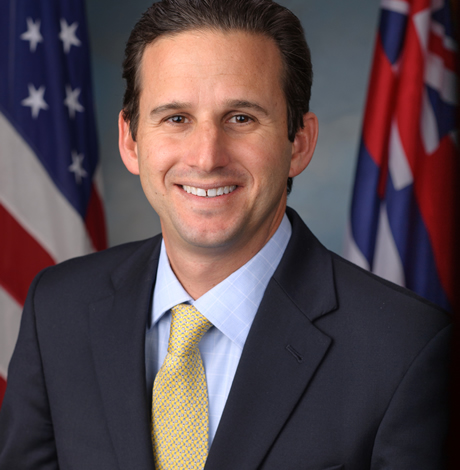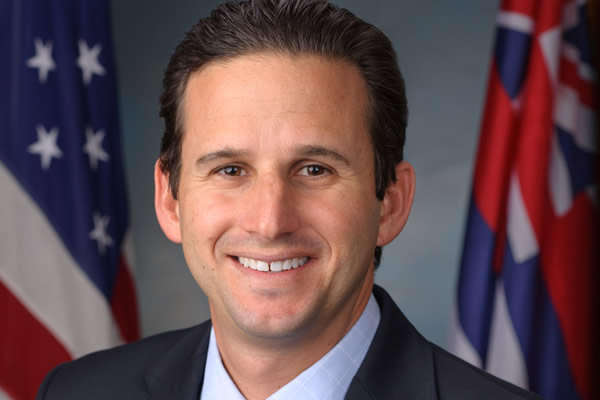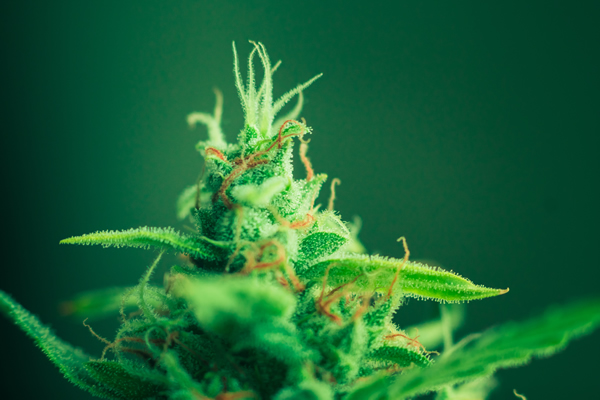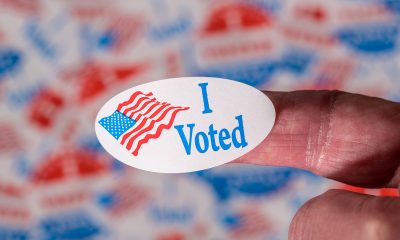Cannabis Culture
Cannabis Culture
Veterans medical marijuana access legislation introduced in House, Senate


Veterans medical marijuana access legislation introduced in House, Senate
WASHINGTON — Senator Brian Schatz (D-Hawaii) and Representative Barbara Lee (D-Calif.) have introduced legislation, The Veterans Medical Marijuana Safe Harbor Act, to expand and facilitate medical cannabis access to military veterans suffering from chronic pain, PTSD, and other serious medical conditions.
Under existing regulations, VA doctors are not permitted to fill out the mandatory paperwork necessary to recommend cannabis therapy in those 33 states that regulate it. Passage of The Veterans Medical Marijuana Safe Harbor Act ends this discrimination against veterans and prevents sanctions against VA doctors who wish to recommend medical cannabis treatment to their patients.
“The Veterans Medical Marijuana Safe Harbor Act would provide crucial medical and civil protections for the men and women who put their lives on the line to serve this country. It is unconscionable that these brave individuals who protect our nation’s freedoms would be treated as criminals when they return home just for treating their medical ailments with a safe and effective option,” said Justin Strekal, NORML Political Director. “We applaud and appreciate the leadership by Senator Schatz and Rep. Lee in putting forward this legislation.”
“Historically, veteran and military communities have long been at the forefront of American social change, catalyzing the widespread acceptance of evolving cultural norms and perceptions surrounding racial, gender, and sexual equality. The therapeutic use of cannabis by veterans follows this trend and members of Congress should follow their lead and pass the Veterans Medical Marijuana Safe Harbor Act,” Strekal concluded.
“In 33 states, doctors and their patients have the option to use medical marijuana to manage pain — unless those doctors work for the VA and their patients are veterans,” Sen. Schatz said. “This bill gives VA doctors in these states the option to prescribe medical marijuana to veterans, and it also promises to shed light on how medical marijuana can help with the nation’s opioid epidemic.”
“As the daughter of a veteran, I am committed to ensuring that our veterans have access to the quality and comprehensive medical care they deserve — including medical marijuana. The current federal prohibitions on cannabis are unnecessary, harmful, and counterproductive,” said Lee. “The federal government should never stand between our veterans and their medicine. This critical legislation is a long overdue step to empower veterans and their doctors to make informed health care decisions, without political interference.”
WHO committee calls for changes in cannabis international classification
GENEVA — Members of the World Health Organization (WHO) Expert Committee on Drug Dependence have proposed amending the classification of cannabis under international law.
According to reporting in the British Medical Journal, the WHO policy reversal “takes account of the growing evidence for the medical applications of the drug,” and marks the first time that the agency has reviewed its stance on cannabis in nearly 60 years.
The recommended changes, outlined in a letter by WHO Director-General Dr. Tedros Adhanom Ghebreyesus, call for cannabis to be removed from Schedule IV of the 1961 Single Convention on Narcotic Drugs. Schedule IV is the most restrictive classification under the treaty. Instead, the committee advises that whole-plant cannabis and THC be designated as Schedule I controlled substances under international law.
“The current [international] scheduling of cannabis is as strict as that for heroin,” the BMJ summarizes. “[T]he committee believes that keeping cannabis at that level of control would severely restrict access to and research on potential therapies derived from the plant.”
In a separate recommendation, the committee reiterated its 2017 request that preparations containing “pure cannabidiol … and not more than 0.2 percent of delta-9-tetrahydrocannabinol” no longer be scheduled within the international drug conventions.
The Committee’s policy recommendations now await action from the 53 participating members states of the United Nation’s Commission on Narcotic Drugs. The Commission is anticipated to vote on the issue in March.
In October, NORML delivered over 10,000 public comments to the US Food and Drug Administration urging the agency to recommend that WHO reschedule cannabis internationally.
Study: Cannabis use associated with metabolic benefits
SANTANDER, Spain — Cannabis use is associated with sustained effects on weight and metabolism, including lower body mass index (BMI) and lower overall cholesterol levels, according to the results of a three-year longitudinal study published in the Journal of Psychopharmacology.
Spanish researchers assessed the relationship between cannabis and weight over a three-year period in a cohort of 510 subjects. Participants in the study were classified as either “continuers,” “discontinuers” and “non-users.”
At the study’s initiation, cannabis users presented “lower weight, body mass index, total cholesterol, and low-density lipoprotein-cholesterol compared to non-users,” investigators reported. Differences in weight, BMI, and LDL levels remained consistent over the three-years among those subjects who continued to consume cannabis. By contrast, those patients who discontinued using cannabis use over the course of the study “presented a higher increase in weight, body mass index, and triglyceride-high-density lipoprotein ratio than the ‘non-users’ and ‘continuers.'”
Authors concluded, “Thus, we may interpret that cannabis consumption has a protective effect on metabolism, which is reflected in clinical terms.”
The study’s results are consistent with a number of prior trials — such as those here, here, and here — finding that a history of marijuana use is associated with a lower prevalence of obesity, high cholesterol and diabetes.
Cannabis Culture news in the Blade is provided in partnership with NORML. For more information, go to NORML.org or contact Paul Armentano, NORML Deputy Director, at [email protected].

Democratic Gov. Michelle Lujan Grisham earlier this month signed two separate measures into law amending the state’s marijuana policies. The first measure (House Bill 2) legalizes and regulates marijuana possession, production, and sales for adults. The second measure (Senate Bill 2) facilitates the automatic review and expungement of the records of those convicted of low-level marijuana offenses.
Lawmakers approved both bills during a special legislative session demanded by Gov. Lujan Grisham, who had been a vocal proponent of the reforms.
NORML State Policies Manager Carly Wolf said: “This is a day to celebrate! New Mexico will greatly benefit from this new revenue stream and the creation of thousands of jobs. Most notably though, legalization will spare thousands of otherwise law-abiding residents from arrest and a criminal record, and the state’s new expungement law will help provide relief to many who are suffering from the stigma and other collateral consequences associated with a prior marijuana conviction.”
The adult-use measure (House Bill 2) permits those ages 21 and older to legally purchase up to two ounces of marijuana and/or up to 16 grams of cannabis extract from licensed retailers. It also permits adults to home-cultivate up to six mature plants for their own personal use. Retail sales would begin by April 2022.
The expungement measure (Senate Bill 2) stipulates that those with past convictions for offenses made legal under this act are eligible for automatic expungement of their records. Those currently incarcerated for such offenses are eligible for a dismissal of their sentence. It’s estimated that over 150,000 New Mexico residents are eligible for automatic expungement under this measure, according to the Department of Public Safety.
Cannabis Culture news in the Blade is provided in partnership with NORML. Visit norml.org for more information.
Cannabis Culture
Delaware cannabis activists take on corporate marijuana
Criticism from medical marijuana operators claimed that HB150 offers too many cultivation and retail licenses

As the country moves forward with sweeping changes in cannabis policy reform, locals in Delaware are tangling with corporate, multi-state medical marijuana permit holders to pass a bill for full legalization.
Adult-use activists and registered medical patients were stunned to hear opposing testimony from Delaware’s medical marijuana operators. Patients already deal with limited access and costly products. Now, many see the established industry voicing opposition as simply obstructing the progress of adult-use legislation. In response, some patients are now staging a boycott of the regulated dispensaries.
During the first committee hearing for HB150, Delaware’s adult-use bill, four of the state’s six currently licensed, multi-million dollar medical cannabis facilities offered negative testimony.
Zoë Patchell, executive director of Delaware CAN responded: “This market belongs to the long-time consumers, patients, and activists. We create the demand, we’ve been the ones driving the reform efforts, and we pay the prices at dispensaries. Cannabis is more than a market – cannabis is a community. These companies cannot reasonably fathom that we are going to purchase cannabis from any entity that has proven to put profits over patients. And now they seem willing to put consumers’ lives and freedom at risk just to hold out for an unfair advantage in the industry.”
These included publicly traded Columbia Care, “Fresh Delaware” aka CCRI, CannTech Research Inc., and the owner of EZY Venture aka “The Farm.”
They all went on record condemning HB150, and pushing a false narrative about oversupply. The core demand from the permit cartel was some protection for their private business interests with guaranteed adult-use licenses.
Criticism from the medical marijuana operators claimed that HB150 offers too many new cultivation and retail licenses, underlined by deep yet unfounded fears that the new competition would put their companies out of business.
Patchell noted, “We are not going to sit back while multi-state corporate entities, that already monopolize East Coast medical markets, work to undermine our social equity and micro-license provisions.”
Cannabis Culture news in the Blade is provided in partnership with NORML. Visit norml.org for more information.
Cannabis Culture
Virginia marijuana legalization takes effect July 1
Adult possession of cannabis up to one ounce without penalty

Following legislative approval of Democratic Gov. Ralph Northam’s amendments to Senate Bill 1406 and House Bill 2312, Virginia became the first southern state to legalize the possession and use of marijuana by adults.
Senate Bill 1406, introduced by Sen. Adam Ebbin (D-30) and Senate President Pro Tempore Senator Louise Lucas (D-18), and House Bill 2312, patroned by House Majority Leader Delegate Charniele Herring (D-46), establish a statutory timeline for the legalization of the commercial marijuana market in Virginia. The measure also permits for the personal possession and cultivation of cannabis by those ages 21 or older.
Last week, Gov. Northam recommended changes to the legislation to permit the personal use provisions of the law to take effect on July 1, 2021 rather than on January 1, 2024, the enactment date initially approved by lawmakers. A majority of the legislature concurred with that change.
Therefore, beginning July 1, 2021, adults will be permitted to possess up to one ounce of marijuana and to cultivate up to four cannabis plants per household without penalty.
The timeline by which state regulators have to enact provisions licensing commercial cannabis production and sales remains July 1, 2024.
Commenting on final passage, NORML Development Director Jenn Michelle Pedini, who also serves as executive director of Virginia NORML, said: “This is an incredible victory for Virginia. Legalization will bring an end to the thousands of low-level marijuana infractions occurring annually in the Commonwealth — ending a discriminatory practice that far too often targets Virginians who are young, poor, and people of color.”
Majority Leader Charniele Herring added: “It is a huge day for equity in the Commonwealth. Virginia is now the first state in the South to legalize recreational marijuana use, and I am so proud to have been able to carry this monumental legislation.”
Sen. Ebbin said, “The passage of SB1406 caps off years of struggle to reform our broken and outdated marijuana laws and begins the deliberate steps to repeal the harms of the failed prohibition. I am thankful to NORML, the governor, and my colleagues for moving this 283 bill from inception to passage over the last four months, and look forward to continuing to partner with them to establish a regulated, equity focused, adult-use marketplace in the coming years.”
Newly released statewide polling data finds that 68 percent of registered voters in Virginia, including majorities of Democrats and Republicans, support legalizing marijuana for adults.
Additional amendments added by Gov. Northam will allow the sealing of records related to crimes involving the misdemeanor possession of marijuana with the intent to distribute. Those records will begin to be sealed starting on July 1, 2021. Separate legislation enacted in 2020 previously sealed records related to misdemeanor marijuana possession.
Records specific to the simple possession of marijuana and/or misdemeanor possession with intent to distribute records will be automatically expunged no later than 2025. Those with records specific to crimes involving the felony possession of marijuana with the intent to distribute may begin to petition the courts for an expounging of their records in 2025.
The bill also allows for the re-sentencing of individuals currently incarcerated for marijuana-related offenses. The measure permits those individuals to have a hearing before the court that originally sentenced them, with legal counsel provided for indigent individuals. However, this portion of the bill must be reenacted in 2022.
The legislation also establishes an independent agency, the Virginia Cannabis Control Authority, to oversee the establishment of regulations that will govern the adult-use market. This agency is set to convene this summer. The remainder of the 300-page bill, which details the regulatory and market structure and social equity provisions, is subject to a second review and vote by the Assembly next year.
Cannabis Culture news in the Blade is provided in partnership with NORML. Visit norml.org for more information.
-

 Virginia1 day ago
Virginia1 day agoDefying trends, new LGBTQ center opens in rural Winchester, Va.
-

 South Africa4 days ago
South Africa4 days agoLesbian feminist becomes South African MP
-

 Opinions2 days ago
Opinions2 days agoUSAID’s demise: America’s global betrayal of trust with LGBTQ people
-

 Travel3 days ago
Travel3 days agoManchester is vibrant tapestry of culture, history, and Pride












